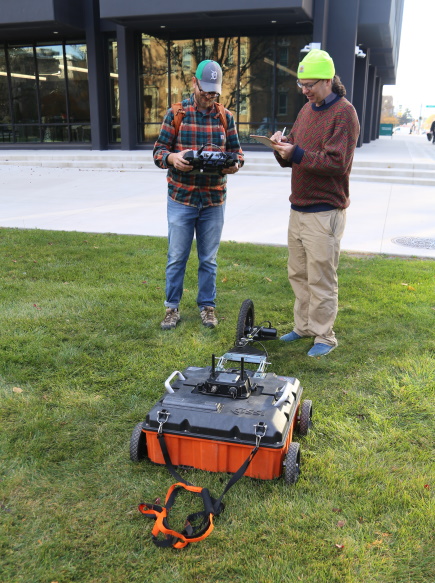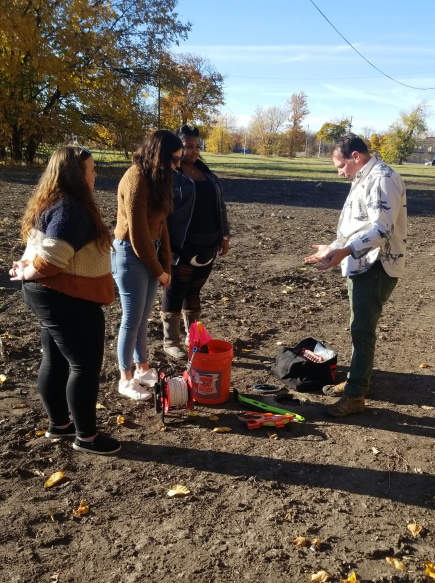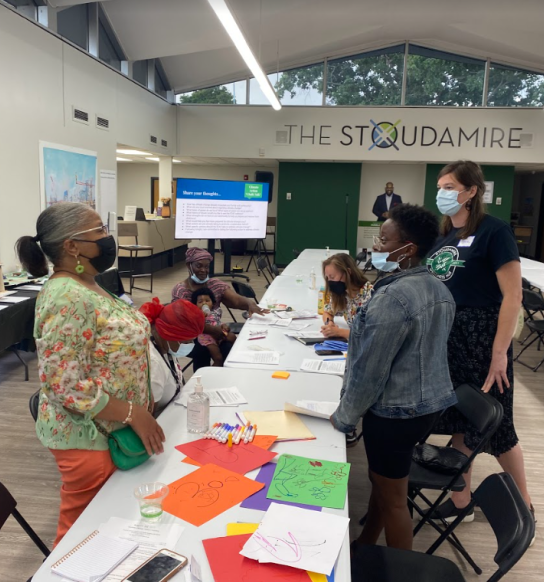WSU research team awarded grant from National Science Foundation to help solve flooding in Detroit homes
CIVIC Community challenge accepted: Wayne State University investigators with expertise in Social Work, Anthropology, Civil & Environmental Engineering, Communication, and Environmental Science will collaborate with the Eastside Community Network, Jefferson East, Inc., and the United Way for Southeastern Michigan to ensure that residents who have faced racial and economic discrimination have the information and resources needed to prepare for and respond to climate change induced flooding.

Social Work Associate Dean for Research and Professor, Richard Smith, is the principal investigator for this project called “Recovering from Expected Flooding Under Residential Buildings” (REFURB). REFURB will use technology to improve recovery from and preparation for persistent and increasing severe basement flooding that impacts homes in Eastside Detroit.
“Our focus will be in neighborhoods with older homes connected to again sewer systems that are undersized and poorly maintained due to racially-driven development policy and investment decisions,” Smith said.
To that end, Wayne State (WSU) was recently awarded a six-month, $50,000 planning grant from The National Science Foundation, U.S. Department of Energy, and the U.S. Department of Homeland Security as part of a Civic Innovation Challenge. The Civic Innovation Challenge is a competition that funds ready-to-implement, researched-based pilot projects that have the potential for scalable, sustainable, and transferable impact on community-driven projects. WSU is among just 56 U.S. teams that were awarded grants.

Teams vying for the grants are focused on one of two tracks: “Living in a Changing Climate” and “Resource and Service Equity.” WSU’s project is in the former category.
In addition to Smith, other stage one project personnel and partner institutions include William Shuster (co-principal investigator), WSU School of Engineering; Erin Stanley (co-principal investigator), Eastside Community Network and WSU School of Social Work; Shawn McElmurry, WSU School of Engineering; Matthew Seeger, WSU College of Fine and Performing Arts; Joy Swanson Ernst, WSU School of Social Work; Richard Ackerman, Eastside Community Network; Joshua Elling, Jefferson East, Inc.; and Shayla Zimmerman, United Way for Southeastern Michigan.
Goals of the project include 1) Using flood damage reports, environmental, and other data to develop maps to target adaptations of critical infrastructure to mitigate future flooding vulnerability; 2) Describe the attributes and supports needed for equitable disaster recovery and mitigation; and 3) Develop an understanding of social structures, systems, and community science literacies needed for early-warning, response, and flood risk preparedness for residents who lack digital access.
To achieve these goals, REFURB is convening a task force comprised of impacted community residents to develop strategies required to support resilience to climate-induced flooding. Potential solutions include developing better techniques to access the condition of residential sewer pipes and optimize infrastructure investment, creating a trauma-informed framework to improve community resilience to climate change, and developing better ways to communicate risk and enhance disaster recovery in communities where residents don’t have smartphones or broadband.

“By learning how people in neighborhoods interact with technology needed to make homes ‘safe to fail,’ findings will inform other urban communities experiencing climate-induced flooding,” said Shuster.
The CIVIC 2022 Stage One Planning Grant is one of two grants WSU is eligible for. Stage One awardees can submit proposals for Stage Two pilots, which encompass $1 million, one-year awards to implement their community pilot projects. The team is looking to expand expertise and partnerships as residents brainstorm and prioritize solutions in Stage Two. So far this includes Scott Burdick, WSU Geology; Xiaodong Qian, WSU Civil and Environmental Engineering; Lutalo Sanifu, Jefferson East, Inc.; and Tamara Franklin, United Way for Southeastern Michigan.
Recent research shows the limitations of managing stormwater through landscape changes, because success is contingent on the type of soil, plants, size, and frequency of storms. Consistent with NSF’s mission, REFURB aims to use science to improve individual well-being.
Two thirds of Detroit homes have flooded in the last five years. Urban basement flooding is a solvable problem where we can use technology for social good. - WSU Social Work Associate Dean for Research and Professor Richard Smith
Author: Laura Hipshire laurahipshire@wayne.edu